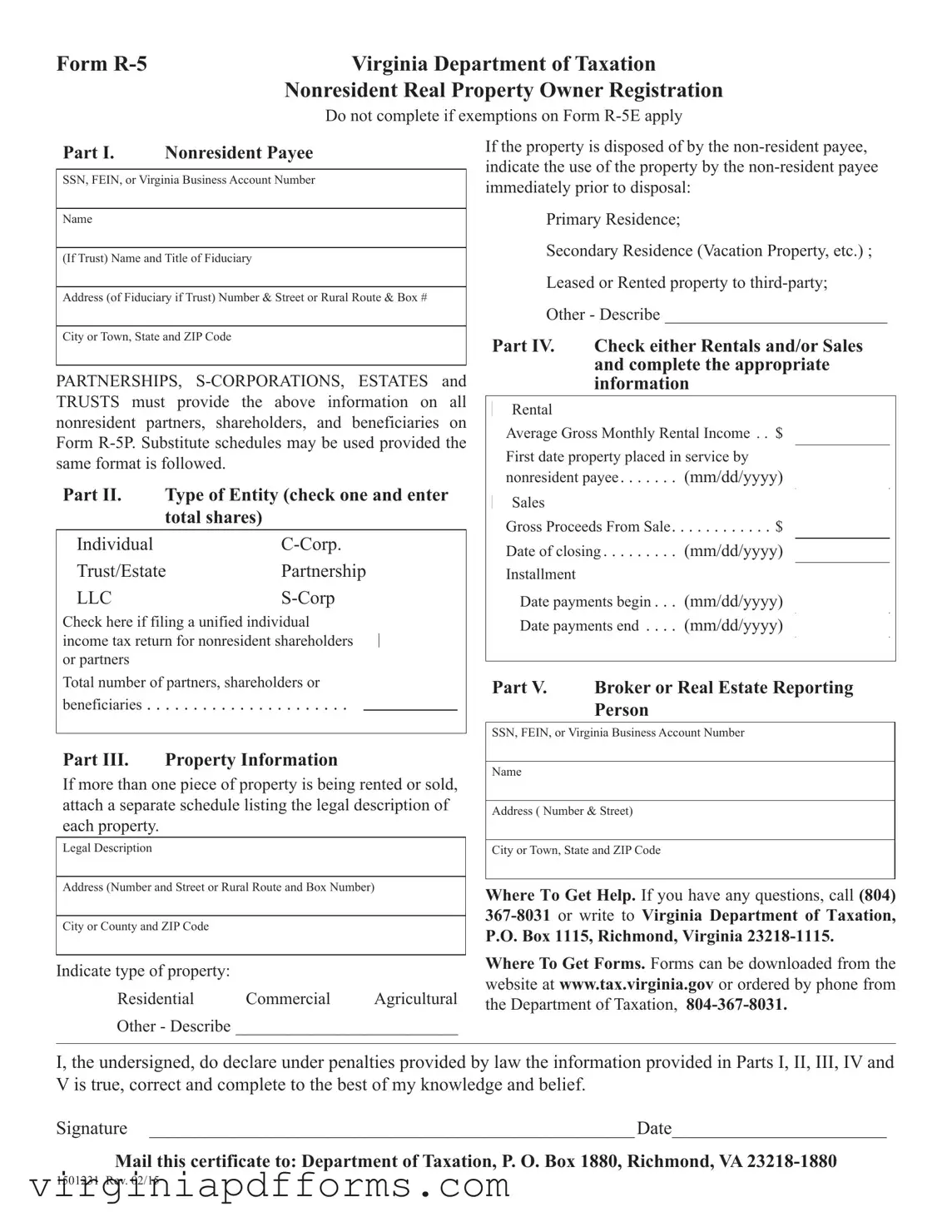Fill in a Valid R 5 Virginia Template
The R 5 Virginia form is a registration document specifically designed for nonresident real property owners in Virginia. This form is essential for individuals or entities that do not reside in Virginia but own rental or sales properties within the state. Completing the R 5 ensures compliance with Virginia tax regulations and helps facilitate proper reporting of income from these properties.
Access My Document Now

Fill in a Valid R 5 Virginia Template
Access My Document Now

Access My Document Now
or
Free R 5 Virginia File
Need this form wrapped up fast?
Finish R 5 Virginia online — edit, save, download without effort.